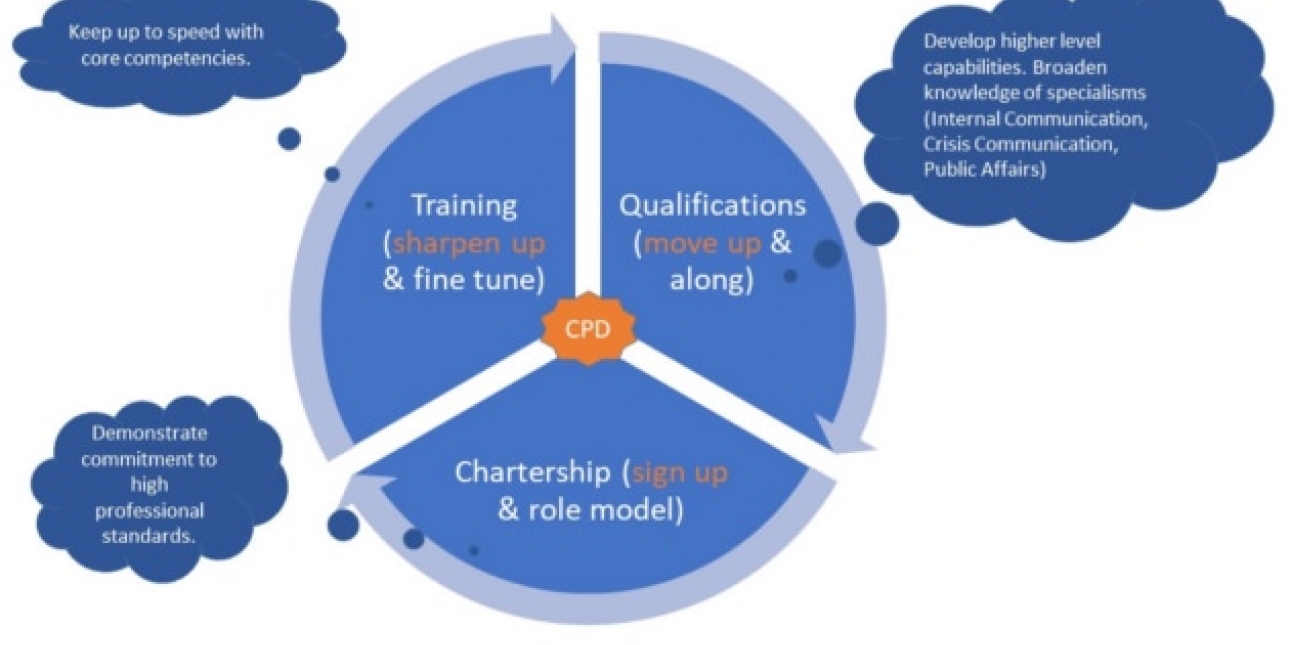PUBLIC RELATIONS
Friday 2nd November 2018
Why study for a PR or communication qualification?
Doing what has been done before may well not work. Great writing or creative video production has to work hand in hand with strategic thinking that is aligned to business objectives.
The Chartered Institute of Public Relations (CIPR) has put great emphasis recently on promoting public relations as a strategic management function. For further background on what this means for public relations check out this PR Place blog.
Professional development for strategic thinking entails going beyond surface level learning that is based on rote learning or something simply done for an exam. Surface level learning fails to distinguish principles from examples. Case studies are often interesting, but they should not be treated as simplistic templates for practice. What works in one situation may well not work in another situation. Tick-box learning is soon forgotten.
Instead, deep level learning is required. This is about focusing on concepts rather than cases. It includes an understanding of the difference between opinion and frameworks established through research and evidence. Deep level learning incorporates reflexivity (not to be confused with reflection). Reflexivity is about going beyond what you have learned to understanding why you have learned it too.
This is now embedded in all CIPR qualifications provided by PR Academy and is one reason why students find the courses so valuable.
Reflexivity encourages you to confront your mistakes as exemplified in Mathew Syed’s black box thinking. As Syed says, “Talent isn’t irrelevant, but in a complex world it isn’t enough”.
Support for professional development in public relations and communication management has never been better. Although the perennial debate about experience versus qualifications is not going away (see this PR Conversations blog) the development field can now be mapped as shown below.

It is self-limiting to think of professional development as a linearprocess. For example, doing training, then a qualification, and then becoming chartered.
It is much more productive to believe in that somewhat hackneyed phrase ‘lifelong learning’, identifying the right learning support for you at the time that you benefit most from it. That said, professional qualifications are more likely to provide deeper level learning than basic training.
A qualification includes time to get to grips with new concepts. Good tutors engage students in the learning, sometimes confronting misconceptions and encouraging discussion and debate to enhance learning. Qualifications incorporate assessments where you have to apply knowledge to a real-life scenario.
Chartership is different. It is not a qualification. It is an accreditation of your professional standards and signals a commitment to your ongoing professional development.
I have experienced great training days. I am a chartered manager. And I have undertaken professional qualifications as well as doing an MBA and a PhD. They have all been useful.
However, without any shadow of doubt, qualifications provided the best investment. Both in terms of self-development and long-term career progression.
If you are wondering about doing a qualification, the business case is clear. You will become a more strategic practitioner, you will grow as an individual and become more confident and your organisation/clients will benefit from more effective practice.
Photo by Green Chameleon on Unsplash

